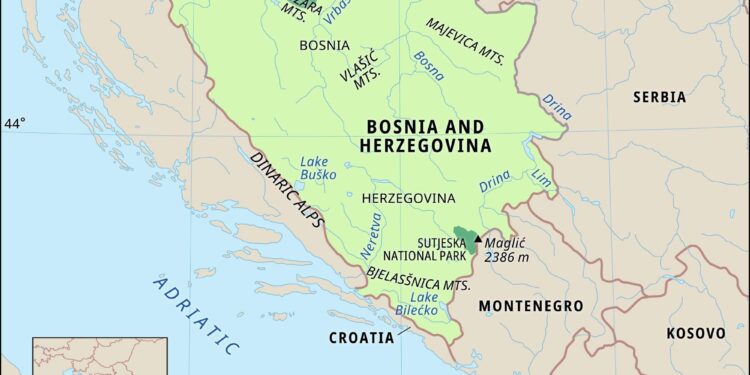Marking the 30th anniversary of the Srebrenica massacre, Amnesty International has issued a solemn reminder of the atrocities that unfolded in Bosnia and Herzegovina during the darkest days of the 1990s conflict. The mass killing of more than 8,000 Bosniak men and boys in July 1995 remains one of the gravest war crimes in Europe since World War II-a painful chapter that continues to cast a long shadow over the region. As commemorations take place across Bosnia and Herzegovina and the world, human rights advocates emphasize the urgent need for justice, remembrance, and renewed efforts to combat hatred and prevent future atrocities.
Srebrenica Massacre Anniversary Highlights Continued Struggles for Justice and Accountability
Marking three decades since one of the darkest chapters in Europe’s recent history, the legacy of the events in Srebrenica continues to weigh heavily on Bosnia and Herzegovina and the international community. Despite countless investigations and international tribunals, survivors and families of victims still face ongoing challenges in their pursuit of justice and recognition. Amnesty International emphasizes that the massacre stands not only as a symbol of immense human loss but also as a stark reminder of the continuing need for accountability in the region. Efforts to combat denial and revisionism remain essential in preventing the erasure of historical truth and supporting reconciliation.
Progress remains uneven, with political tensions and social divisions obstructing full recognition and reparations. The following issues highlight the current obstacles confronting justice advocates and victim communities:
- Lack of comprehensive accountability: Many perpetrators have yet to be prosecuted or face partial justice.
- Denial and revisionism: Certain factions continue to dismiss or downplay the magnitude of the atrocity.
- Insufficient support for survivors: Psychological, social, and economic aid remains inadequate.
- Political challenges: Fragmented governance structures hinder unified responses.
| Key Milestones | Date | Impact |
|---|---|---|
| UN Recognition of Genocide | 2004 | Legal framework for prosecution established |
| Establishment of Memorial Centre | 2003 | Commemoration and education strengthened |
| Ongoing Judicial Proceedings | 2020-Present | Perpetrators held accountable in domestic courts |
Amnesty International Calls for Renewed Commitment to Human Rights Protections in Bosnia and Herzegovina
Marking three decades since the tragic events in Srebrenica, Amnesty International urges authorities in Bosnia and Herzegovina to strengthen their dedication to human rights and justice. The massacre remains a stark reminder of the consequences of hatred and intolerance, underscoring the urgent need to address ongoing challenges related to accountability, transitional justice, and protection for survivors. The organization highlights the importance of cooperation between governmental institutions and civil society to foster an environment where human rights are respected and upheld.
Amnesty International calls on all involved parties to focus their efforts on several critical priorities:
- Ensuring full reparation and support for survivors and families of victims.
- Combating denial and revisionism of genocidal crimes through education and public awareness campaigns.
- Enhancing legal frameworks to prevent human rights abuses and guarantee minority rights.
- Promoting independent investigations into past and present violations.
| Year | Deaths Confirmed | Justice Milestones | ||||||||||||||||||||||
|---|---|---|---|---|---|---|---|---|---|---|---|---|---|---|---|---|---|---|---|---|---|---|---|---|
| 1995 | 8,000+ | Massacre Occurred | ||||||||||||||||||||||
| 2001 | – | First War Crime Trials Begin | ||||||||||||||||||||||
Marking three decades since the tragic events in Srebrenica, Amnesty International urges authorities in Bosnia and Herzegovina to strengthen their dedication to human rights and justice. The massacre remains a stark reminder of the consequences of hatred and intolerance, underscoring the urgent need to address ongoing challenges related to accountability, transitional justice, and protection for survivors. The organization highlights the importance of cooperation between governmental institutions and civil society to foster an environment where human rights are respected and upheld. Amnesty International calls on all involved parties to focus their efforts on several critical priorities:
|
















